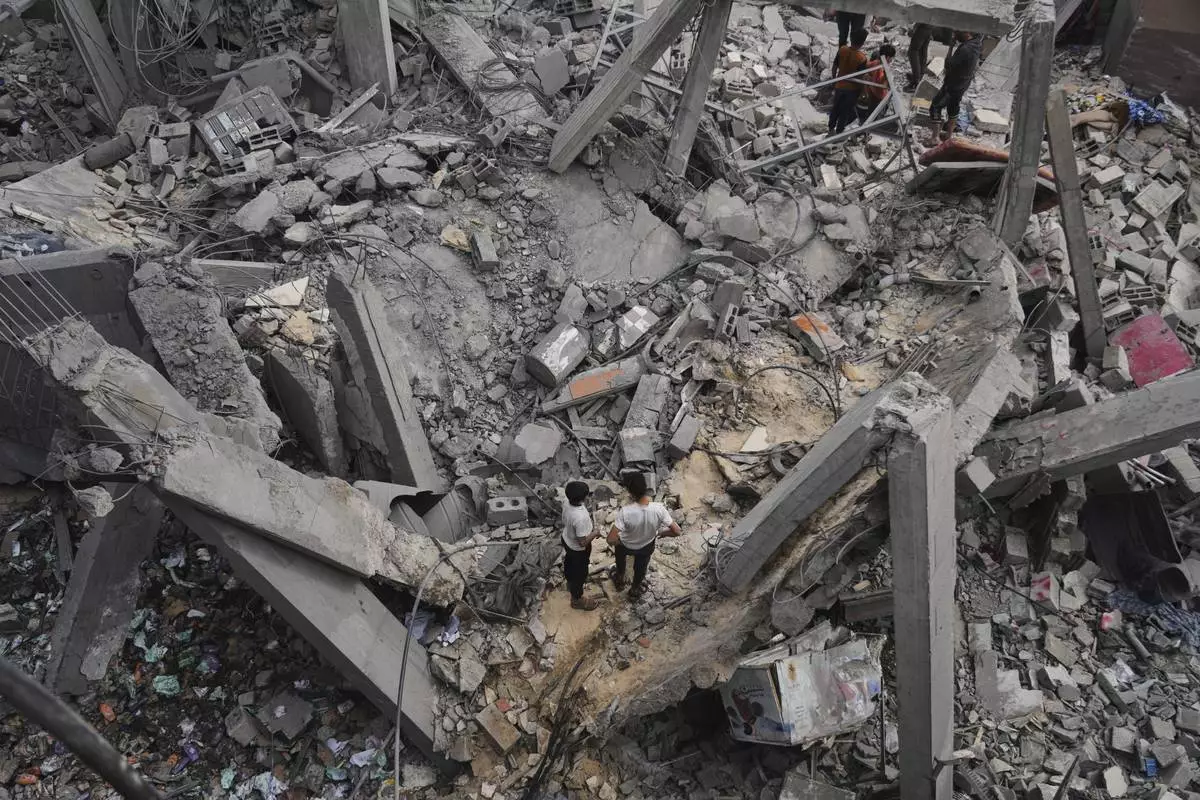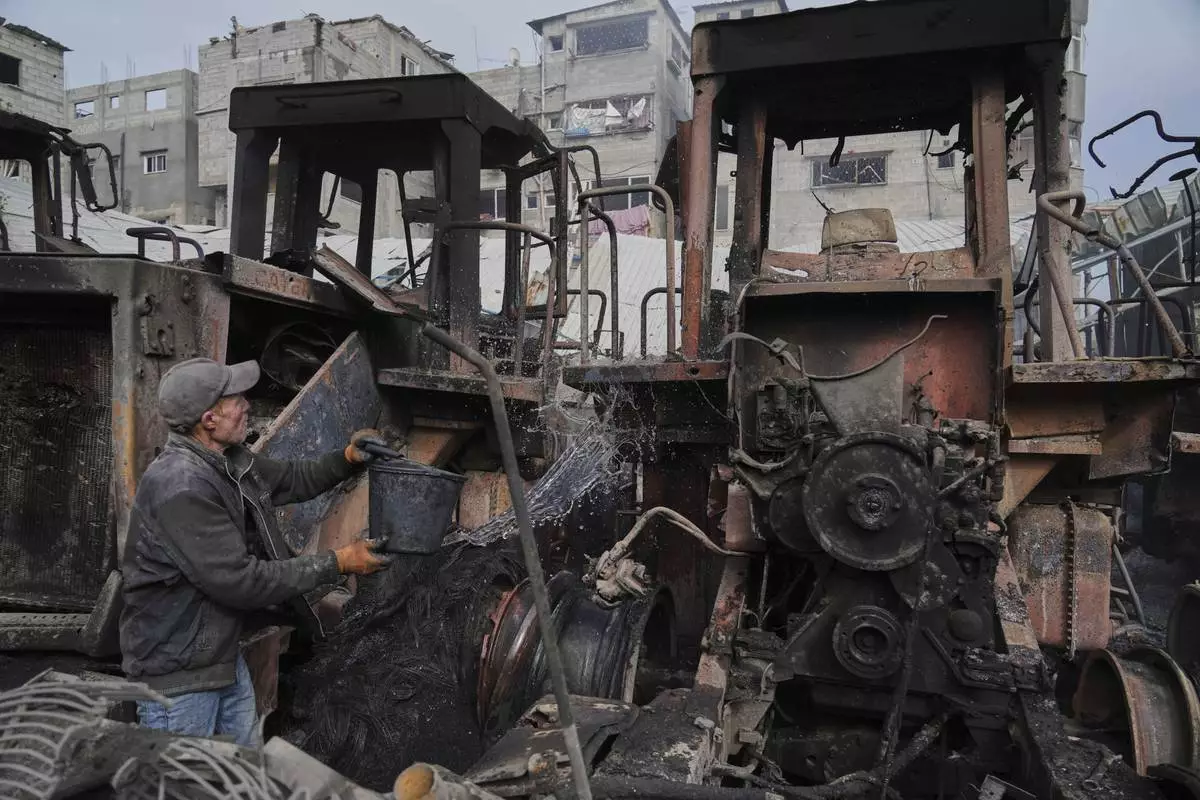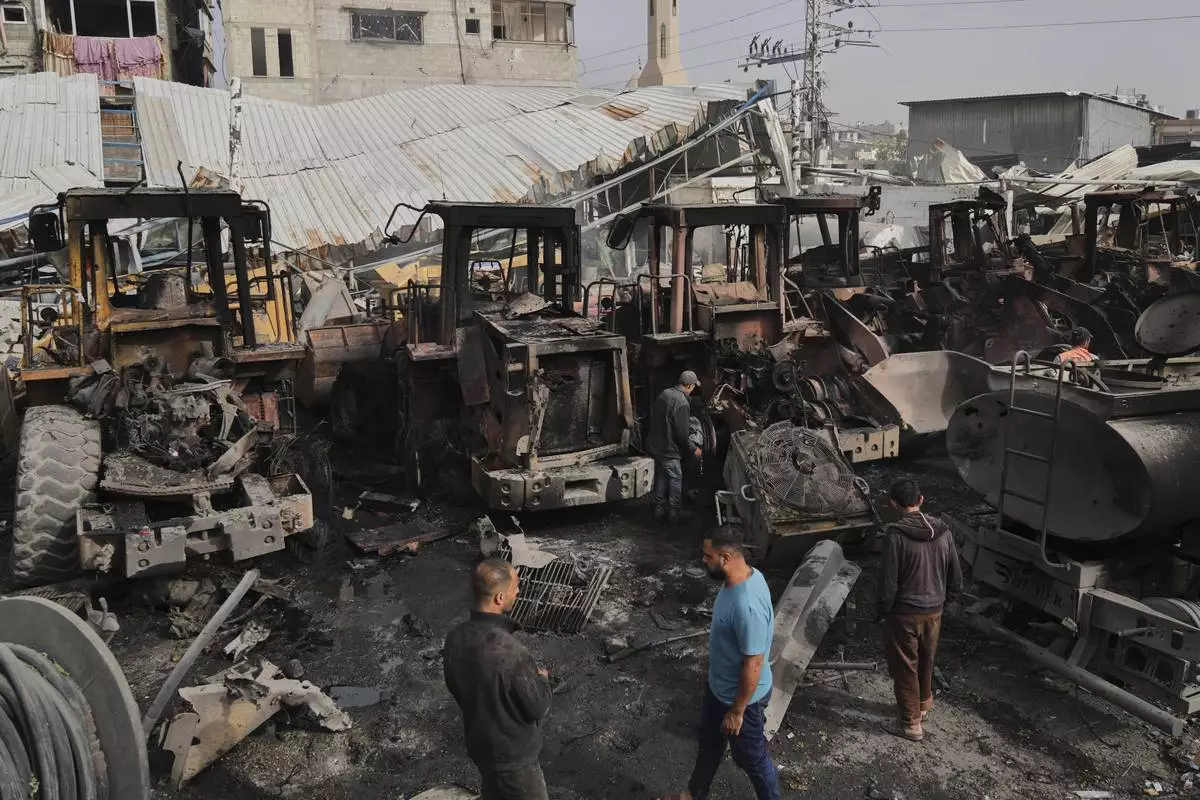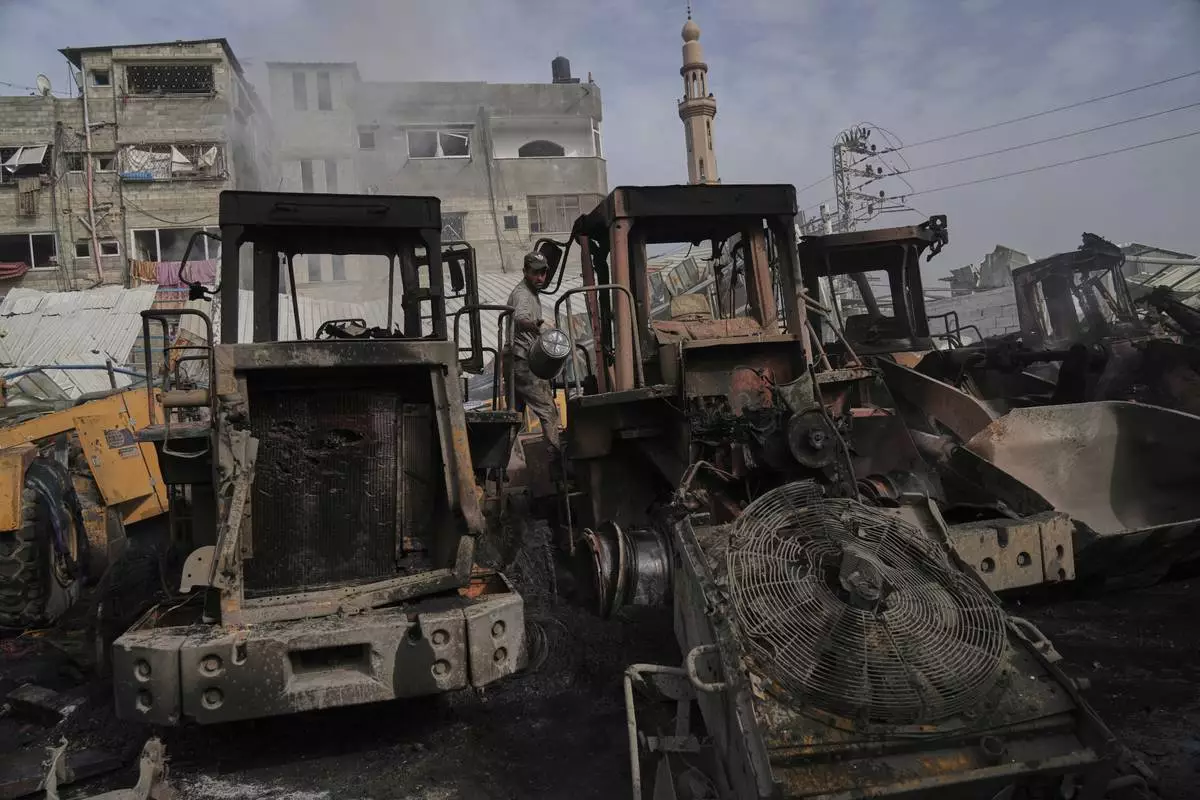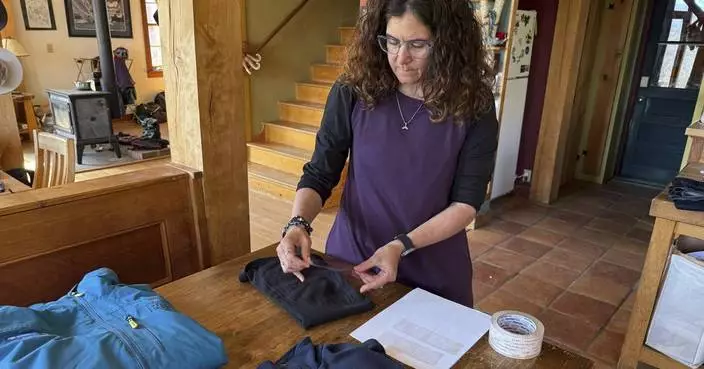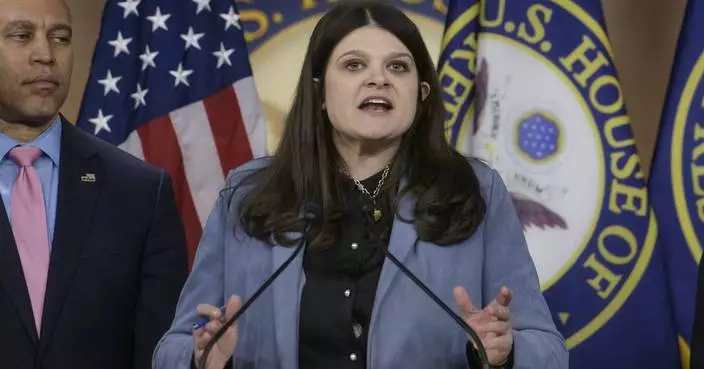LONDON (AP) — WikiLeaks founder Julian Assange headed to the Northern Mariana Islands on Tuesday to complete a plea deal with U.S. federal prosecutors that will allow him to walk free in return for a guilty plea.
In a deal with the U.S. Justice Department, Assange will plead guilty to an Espionage Act charge of conspiring to unlawfully obtain and disseminate classified national defense information in a federal court in the U.S. commonwealth in the Western Pacific, the agency said in a letter filed in court.
This will allow him to walk free and resolve a long-running legal saga that spanned multiple continents and centered on the publication of a trove of classified documents.
Assange left a high-security London prison where he was in custody since 2019, after spending seven years in self-exile in the Ecuadorian Embassy in London.
— 2006: Assange founded WikiLeaks in Australia. The group begins publishing sensitive or classified documents.
— 2010: In a series of posts, WikiLeaks releases almost half a million documents relating to the U.S. wars in Iraq and Afghanistan.
— August 2010: Swedish prosecutors issue an arrest warrant for Assange based on one woman’s allegation of rape and another’s allegation of molestation. The warrant is withdrawn shortly afterward, with prosecutors citing insufficient evidence for the rape allegation. Assange denies the allegations.
— September 2010: Sweden’s director of prosecutions reopens the rape investigation. Assange leaves Sweden for Britain.
— November 2010: Swedish police issue an international arrest warrant for Assange.
— December 2010: Assange surrenders to police in London and is detained pending an extradition hearing. The High Court grants Assange bail.
— February 2011: A district court in Britain rules Assange should be extradited to Sweden.
— June 2012: Assange enters the Ecuadorian Embassy in central London, seeking asylum, after his bids to appeal the extradition ruling fail. Police set up an around-the-clock guard to arrest him if he steps outside.
— August 2012: Assange is granted political asylum by Ecuador.
— July 2014: Assange loses his bid to have an arrest warrant issued in Sweden against him canceled. A judge in Stockholm upholds the warrant alleging sexual offenses against two women.
— March 2015: Swedish prosecutors ask to question Assange at the Ecuadorian Embassy.
— August 2015: Swedish prosecutors drop investigations into some allegations against Assange because of the statute of limitations; an investigation into a rape allegation remains active.
— October 2015: Metropolitan Police end their 24-hour guard outside the Ecuadorian Embassy but say they’ll arrest Assange if he leaves, ending a three-year police operation estimated to have cost millions.
— February 2016: Assange claims “total vindication” as the U.N. Working Group on Arbitrary Detention finds that he has been unlawfully detained and recommends he be immediately freed and given compensation. Britain calls the finding “frankly ridiculous.”
— September 2018: Ecuador’s president says his country and Britain are working on a legal solution to allow Assange to leave the embassy.
— October 2018: Assange seeks a court injunction pressing Ecuador to provide him basic rights he said the country agreed to when it first granted him asylum.
— November 2018: A U.S. court filing that appears to inadvertently reveal the existence of a sealed criminal case against Assange is discovered by a researcher. No details are confirmed.
— April 2019: Ecuadorian President Lenin Moreno blames WikiLeaks for recent corruption allegations; Ecuador's government revokes Assange's asylum status. London police haul Assange out of the Ecuadorian Embassy and arrest him for breaching bail conditions in 2012, as well as on behalf of U.S. authorities.
— May 2019: Assange is sentenced to 50 weeks in prison for jumping bail in 2012.
— May 2019: The U.S. government indicts Assange on 18 charges over WikiLeaks’ publication of classified documents. Prosecutors say he conspired with U.S. Army intelligence analyst Chelsea Manning to hack into a Pentagon computer and release secret diplomatic cables and military files on the wars in Iraq and Afghanistan.
— November 2019: Swedish prosecutor drops rape investigation.
— May 2020: An extradition hearing for Assange is delayed during the COVID-19 pandemic.
— June 2020: The U.S. files a new indictment against Assange that prosecutors say underscores Assange’s efforts to procure and release classified information.
— January 2021: A British judge rules Assange cannot be extradited to the U.S. because he is likely to kill himself if held under harsh U.S. prison conditions.
— July 2021: The High Court grants the U.S. government permission to appeal the lower court's ruling blocking Assange's extradition.
— December 2021: The High Court rules that U.S. assurances about Assange's detention are enough to guarantee he would be treated humanely.
— March 2022: Britain’s Supreme Court refuses to grant Assange permission to appeal against his extradition.
— June 2022: Britain's government orders the extradition of Assange to the United States. Assange appeals.
— May 2023: Australian Prime Minister Anthony Albanese says Assange should be released and “nothing is served” by his ongoing incarceration.
— June 2023: A High Court judge rules Assange cannot appeal his extradition.
— Feb. 20, 2024: Assange's lawyers launch a final legal bid to stop his extradition at the High Court.
— March 26, 2024: Two High Court judges in London give U.S. authorities three more weeks to submit further assurances, including a guarantee that Assange won't get the death penalty, before deciding whether they will grant him a new appeal against his extradition.
— May 20, 2024: The two High Court judges rule that Assange can mount a new appeal based on arguments about whether he will receive free-speech protections or be at a disadvantage because he is not a U.S. citizen. The date of the hearing has yet to be determined.
— June 24, 2024: The U.S. Justice Department says in a letter filed in court that, under a deal with the agency, Assange will be allowed him to walk free in return for pleading guilty to an Espionage Act charge of conspiring to unlawfully obtain and disseminate classified national defense information.

FILE - WikiLeaks founder Julian Assange arrivies at Belmarsh Magistrates' Court in London, Feb. 7, 2011. Assange will plead guilty to a felony charge in a deal with the U.S. Justice Department that will free him from prison and resolve a long-running legal saga over the publication of a trove of classified documents. (AP Photo/Kirsty Wigglesworth, files)



